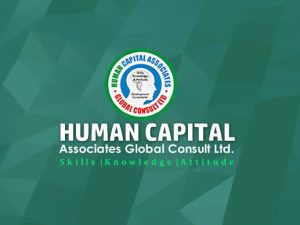Workshop on Supply Chain & Logistics Management for Hospital Managers
Jan. 29 – Feb. 2, 2024, 1st Run: Lagos & Port Harcourt
July 29 – Aug. 2, 2024, 2nd Run: Lagos & Abuja
For Tutor -Led Class: 9am – 4:30pm
Workshop fee: N250, 000 per Participant
For online: Delivery via Zoom
Online course fee: N200, 000 per Participant
Available for In-plant Training
Program Overview:
Healthcare supply chain management involves obtaining resources, managing supplies, and delivering goods and services to healthcare providers and patients. To complete the process, physical goods and information about medical products and services usually go through a number of independent stakeholders, including manufacturers, insurance companies, hospitals, providers, group purchasing organizations, and several regulatory agencies.
However, by promoting efficiency in the healthcare supply chain, hospitals and physician practices can create substantial cost-reducing opportunities across their organizations.
This course covers the latest essential practices in forecasting, planning, procurement, transportation, warehousing and logistics. It also covers the Supply Chain Operations Reference (SCOR) framework for continuous performance improvement across the supply chain and how to apply it for hospitals.
For Whom:
This program is designed for Store Managers, Administrative Managers, Procurement and Project personnel, Engineering, Operational, Quality and Maintenance personnel. And all others who are involved in interfacing with contractors or suppliers in the acquisition of materials, equipment, parts and services or anyone who wants to improve supplier performance and gain successful outcomes from contracting situations in hospital management.
Learning Objectives:
At the end of the program, participants will be able to:
- Acquire skills in modern practices in supply chain and logistics management;
- practice forecasting and inventory optimization techniques in hospital management;
- prioritize item categories and formulate appropriate sourcing strategies;
- explain the role and objectives of transportation management in logistics;
- design value-adding warehousing techniques; and
- use the Supply Chain Operations Reference (SCOR) framework for management of supply chain performance and evaluation
Course Outline:
Day 1: Modern Supply Chain & Logistics Management in Hospital Service Delivery: Overview
- Supply chain management overview
- Role of logistics in customer service
- Sustainability in supply chains and logistics management
- Adapting supply chain to hospital management
- 3PL concepts
- 4PL concepts
Day 2: Materials Forecasting & Inventory Planning in Hospital Management
- Qualitative forecasting theories
- Forecasting panels
- Thought leaders
- Delphi technique
- Quantitative forecasting techniques
- Seasonal demand forecasting
- Moving average
- Weighted moving average
- Exponential smoothing
- Forecasting error
- Identifying bias
- Determining economic order quantities
- Determining reorder points
- Replenishment strategies
- Make-to-stock
- Make-to-order
- Assemble-to-order
Day 3: Managing Procurement in Hospital Management
- Role of procurement
- Procurement process flows
- Sourcing strategies
- Vendor management
- Partnerships and alliances
- International Procurement
Day 4: Role of Warehousing in Logistics
- Warehousing network design
- Configuration of warehousing space
- Value-adding activities
- Stockpiling, spot stocking and assortments
- Cross-docking, break bulking and consolidation
- Mixing, postponement and assemble-to-order
- Warehousing equipment and tools
- Reverse logistics
- Role of Transportation Management in Logistics
- Definition of fleet management
- Objectives and costs of fleet management
- Optimized routing and cubing
Day 5: Supply Chain Operations Reference (SCOR)
Framework for Performance Management
- SCOR framework overview
- Identifying level 1, 2 and 3 SCOR metrics
- Customizing level 4 SCOR metrics
- Setting performance targets
- Continuous performance improvement
Training Methodology
Lectures, discussions, exercises, and case studies will be used to reinforce these teaching/learning methods.
Related Courses




